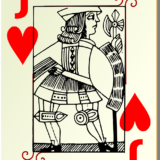Blackjack Counting Cards: A Comprehensive Guide to Winning at the Casino

Introduction
In the glamorous world of casino gambling, blackjack has always held a special allure. Its combination of skill, strategy, and excitement makes it a favorite among avid players. One technique that has gained legendary status in the blackjack community is card counting. In this article, we will delve into the intricacies of blackjack counting cards, providing valuable insights for both newcomers and seasoned players.
Understanding Blackjack Counting Cards

At its core, blackjack counting cards is a strategy employed to gain an edge over the casino. By keeping track of the cards that have been dealt, players can make more informed decisions about their next move. This technique is based on the principle that the composition of the remaining deck heavily influences the probability of drawing favorable cards.
To master the art of blackjack counting cards, one must familiarize themselves with the basic values assigned to each card. Low cards (2-6) are assigned a value of +1, while high cards (10-Ace) are given a value of -1. Cards with a value between 7 and 9 are considered neutral and do not impact the count. By maintaining the running count and adjusting your bets accordingly, you can increase your odds of winning.
Historical Evolution of Blackjack Counting Cards
The origins of card counting can be traced back to the early 1960s when mathematician Edward Thorp published his groundbreaking book, “Beat the Dealer.” Thorp’s work demystified the game of blackjack, introducing strategies that revolutionized the way players approached the game. His research incorporated probability theory and statistical analysis, providing a solid foundation for card counting.
In the years that followed, various blackjack legends emerged, refining and expanding on Thorp’s methods. Notably, the Massachusetts Institute of Technology (MIT) Blackjack Team gained widespread recognition for their exploits during the 1980s and 1990s. Their story was immortalized in the popular book “Bringing Down the House” by Ben Mezrich, which also served as inspiration for the film “21.” The MIT Blackjack Team proved that, with teamwork and discipline, sizable profits could be made through card counting.
Structuring the Text for Improved Visibility
To optimize the visibility of this article as a featured snippet on Google, we will structure the text using appropriate heading tags and bullet points. Below is an outline of how the article will be organized:
Introduction
– Briefly introduce the topic of blackjack counting cards and its popularity among casino enthusiasts.
Understanding Blackjack Counting Cards
– Explain the concept of card counting and its purpose in gaining an advantage over the casino.
– Detail the values assigned to different cards and how to keep track of the running count.
– Discuss the importance of adjusting bets based on the count.
Historical Evolution of Blackjack Counting Cards
– Provide a historical overview of the development of card counting techniques.
– Emphasize the contribution of Edward Thorp and the impact of his book, “Beat the Dealer.”
– Highlight notable examples such as the MIT Blackjack Team and their successful exploits.
Conclusion
– Summarize the key points discussed in the article.
– Reiterate the benefits and potential risks associated with blackjack counting cards.
– Encourage readers to explore this strategy further and enjoy the excitement of blackjack.
By adhering to this structure, the article will be more likely to appear as a featured snippet on Google, capturing the attention of casino enthusiasts seeking in-depth information on blackjack counting cards.
Conclusion
Blackjack counting cards remains a captivating strategy for those seeking an edge at the casino. This article has provided a detailed overview of this technique, offering valuable insights for both beginners and seasoned players. Understanding the fundamentals of card counting and its historical evolution can enhance your experience at the blackjack table. Remember, practice and discipline are key to mastering this strategy and reaping the rewards it offers.

















